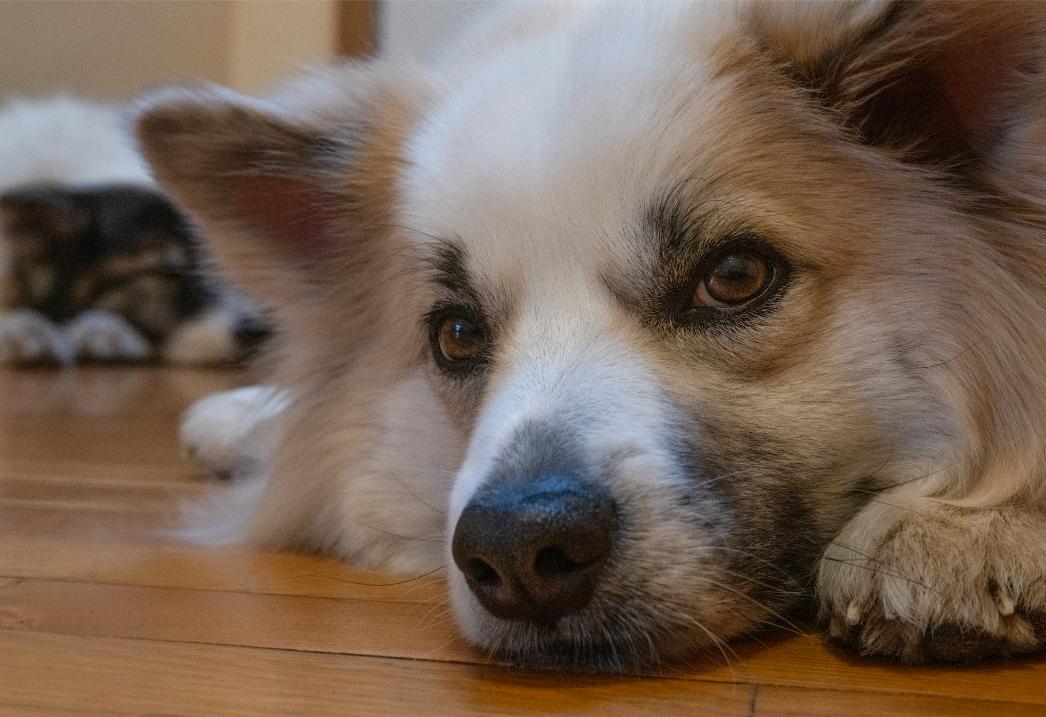Blog
Early Signs of Cancer in Pets

Cancer is a devastating disease, and in dogs and cats, it can develop with only the subtlest of signs. Knowing the early symptoms of cancer in dogs and cats can make a huge difference in helping give your pet the best chance of a positive outcome.
Here are the symptoms South Seminole Animal Hospital wants you to know about and watch for.
5 Symptoms of Cancer in Dogs and Cats
1. Lumps, Masses, Bumps, or Sores that Don’t Heal
When you groom your dog or pet your cat, do a quick check for any lumps or bumps that don’t belong. These types of issues can be benign, but they’re also one of the main signs of cancer.
Keep an eye on non-healing sores, any discolorations of skin or tissue, and visible tumors, too. It’s crucial to schedule a veterinary appointment as soon as you notice anything unusual. The sooner your pet gets diagnosed and treated, the better.
2. Unexplained Weight Loss or Appetite Changes
Anytime your pet drops weight for apparently no reason, it’s time for a vet visit. This is true whether the weight loss accompanies a loss of appetite or not.
For cats, lymphomas or cancers in the gastrointestinal system can lessen the appetite and cause weight loss. In dogs, you might see an increased appetite at the same time as your pup starts losing weight. Different cancers can cause your pet’s body to struggle to use nutrients correctly.
3. Changes in Energy Levels and Behavior
When they’re not feeling well due to cancer, pets often start showing less energy than normal. They might sleep more, act like they don’t want to play or go for a daily walk, or just be lethargic in general.
This is true for dogs and cats alike. Cats might also hide more or act aggressive in their discomfort. Dogs may whine throughout the day or resist jumping onto a favorite couch nook.
It’s worth visiting the vet if you notice any behavior changes that don’t resolve within a few days.
4. Difficulty Eating, Breathing, or Swallowing
Is your pet suddenly struggling to eat their favorite kibble or wet food—even if they’re clearly hungry? Cancers that involve the mouth, throat, nasal cavity, or lungs can cause a host of symptoms, including:
- Difficulty swallowing
- Bleeding from the mouth or noose
- Excessive or abnormal drooling
- Bad breath, even after dental and oral care
If your dog or cat shows any of these potential symptoms of cancer, make note of when they occurred and what happened. Then, take those notes with you to a vet appointment ASAP. This can help your provider understand what’s going on with your pet and chart the next steps.
5. Gastrointestinal Upset
In cancers of the internal organs or gastrointestinal tract, pets can suffer chronic vomiting and diarrhea, bloating, abdominal swelling, or difficulty urinating or defecating. Your pup might go outside and try over and over to go potty, for example, or consistently have loose stool.
If symptoms persist for more than a day or two, it’s time for a vet checkup.
Why Early Recognition Matters
With early detection of cancer symptoms, your veterinary team can get an earlier start on diagnostics. Usually, this includes blood work, imaging, and biopsies, along with treatment plans or even surgery to give your pet the best possible shot at recovery.
If you notice any of the symptoms above—or any not included on our list—reach out to our caring veterinary team at South Seminole Animal Hospital. We are experienced in helping pets and their families navigate cancer diagnoses, and we’ll be with you every step of the way. Call us at (407) 831-5205 to schedule an appointment.
